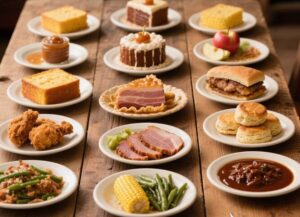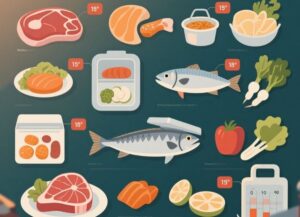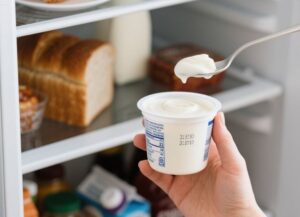A warm cup of coffee can be one of life’s simplest pleasures, but if you’ve recently had a tooth extraction, you may wonder if indulging in your favorite brew is safe. Coffee lovers, don’t worry—we’re here to guide you through the dos and don’ts of sipping coffee post-procedure, ensuring a smooth recovery while satisfying your caffeine cravings.
Why Do You Need to Wait Before Drinking Coffee?
Before we get into the specifics, it’s essential to understand why timing is critical after a tooth extraction. Tooth extraction leaves an open wound in your mouth, requiring time to heal correctly. The healing process involves the formation of a blood clot at the extraction site, serving as a protective layer that prevents infection and promotes the growth of new tissue.
Drinking coffee—or any hot beverage—too soon can create complications. Here’s why:
Heat and Dislodged Blood Clot: Hot beverages can dissolve or dislodge the blood clot, a condition called dry socket. This painful complication can delay healing and require further treatment.
Caffeine and Increased Blood Flow: Caffeine increases blood pressure and blood flow, which may lead to excessive bleeding at the extraction site.
Acidic Properties of Coffee: Coffee is naturally acidic, irritating the wound and potentially slowing healing.
While waiting might be challenging for caffeine enthusiasts, giving the extraction site enough time to heal is vital for a fast and pain-free recovery.
When Is It Safe to Drink Coffee After a Tooth Extraction?
Day 1 (The Critical Period): Avoid coffee entirely. Stick to cold or lukewarm water and soft foods to ensure the extraction site remains undisturbed.
Day 2-3 (The Cautious Phase): Hold off on coffee, scalding coffee. If you must have coffee, consider iced or cold brew options to avoid the risks associated with heat.
Day 4 and Beyond: If you’re healing well and have no complications by the fourth day, you may start to reintroduce lukewarm (not hot) coffee into your diet. Make sure to sip slowly and avoid drinking through a straw, which creates a suction that can dislodge the blood clot.
Full Recovery: For most individuals, the extraction site will have healed significantly within 1–2 weeks. You can safely resume drinking coffee at your preferred temperature—unless instructed otherwise by your dentist.
Factors That May Affect Your Timeline
While the above timeline applies to most people, several factors can influence when it’s safe to enjoy coffee again after a tooth extraction.
Complexity of the Extraction
A simple extraction may heal faster than a surgical extraction, such as for impacted wisdom teeth. For complex procedures, your dentist may advise avoiding coffee (and hot beverages) for extended periods.
Your Body’s Healing Process
Everyone heals at a different pace. If you’re a fast healer and follow post-op instructions carefully, you may return to coffee within a week. If healing is slow, you’ll need to be more patient.
Risk of Dry Socket
Suppose your dentist identifies you as being more susceptible to dry sockets (e.g., smokers and women on hormonal contraceptives have a higher risk). In that case, you may need to avoid coffee and other irritants for an extended time.
Your Regular Coffee Habits
After the extraction, those who consume large amounts of coffee daily may experience caffeine withdrawal symptoms, such as headaches and fatigue. If this applies to you, talk to your dentist about alternate options like decaffeinated tea or iced decaf coffee while your extraction site heals.
Tips for Satisfying Your Coffee Cravings During Recovery
If skipping coffee isn’t an option for you, here are ways to stay caffeinated without risking your recovery:
Opt for Iced Coffee: During the first week, stick to iced or cold-brew coffee. Cold beverages are less likely to disrupt blood clot formation.
Dilute Your Coffee: Mix your coffee with milk or water to minimize its acidic properties and reduce irritation.
Avoid Straws: Drink directly from the cup to prevent suction that could dislodge the blood clot.
Try Herbal Coffee Alternatives: Explore non-caffeinated alternatives like chicory root coffee or herbal teas to curb cravings.
Stay Hydrated: Dehydration can worsen caffeine withdrawal symptoms. Drink plenty of water throughout the day to stay hydrated and aid healing.
What to Avoid (Besides Hot Coffee)
While coffee is just one part of the equation, you should avoid other items that could interfere with your recovery.
Smoking: Smoking significantly increases the risk of dry sockets and delays healing. Avoid smoking for at least 48 hours, but ideally for longer.
Carbonated Drinks: Soda and other carbonated beverages can irritate the wound.
Alcohol: Alcohol can dehydrate your body, slow healing, and conflict with prescribed medications.
Crunchy or Spicy Foods: These can irritate or get lodged in the extraction site.
By avoiding these items and following your dentist’s advice, you’ll be setting yourself up for a smooth and speedy recovery.
Final Sip of Advice
Returning to your regular coffee routine after a tooth extraction requires patience, but giving your mouth time to heal will pay off in the long run. As a rule of thumb, wait until the extraction site has stabilized—typically four days to a week—before reintroducing coffee. Always consult your dentist if you’re unsure.
Your smile deserves the best care you can give it, even if it means waiting a little while for that perfect cup of coffee. Take it slow, prioritize your healing, and enjoy that first sip once you’re clear—it’ll be worth the wait!








